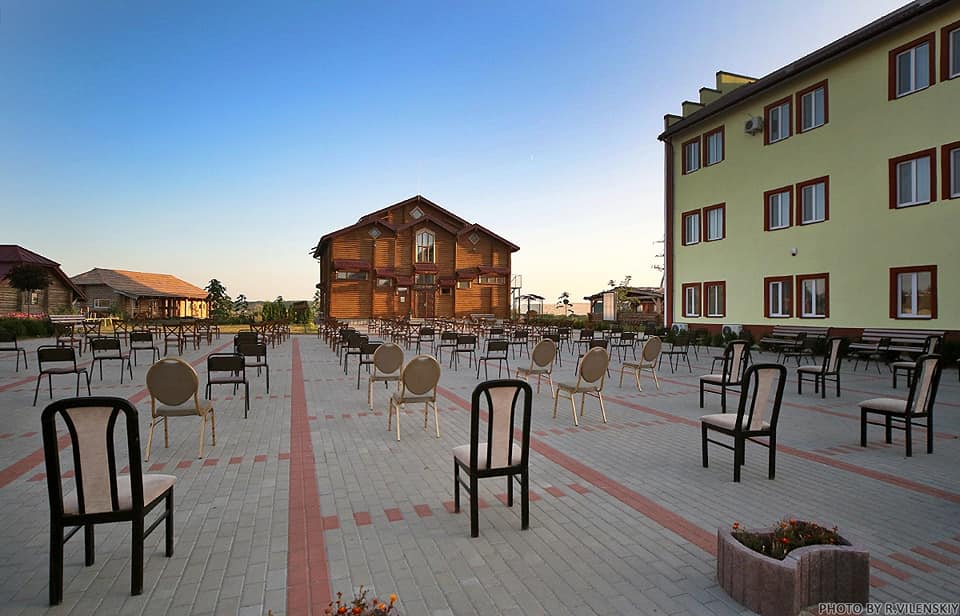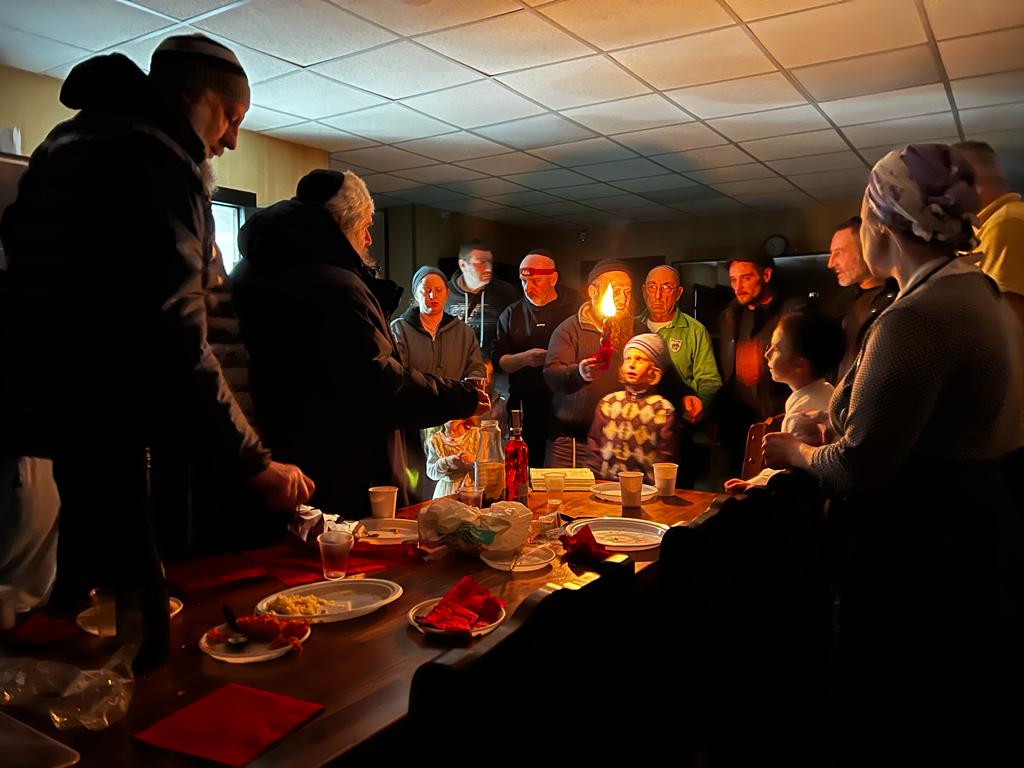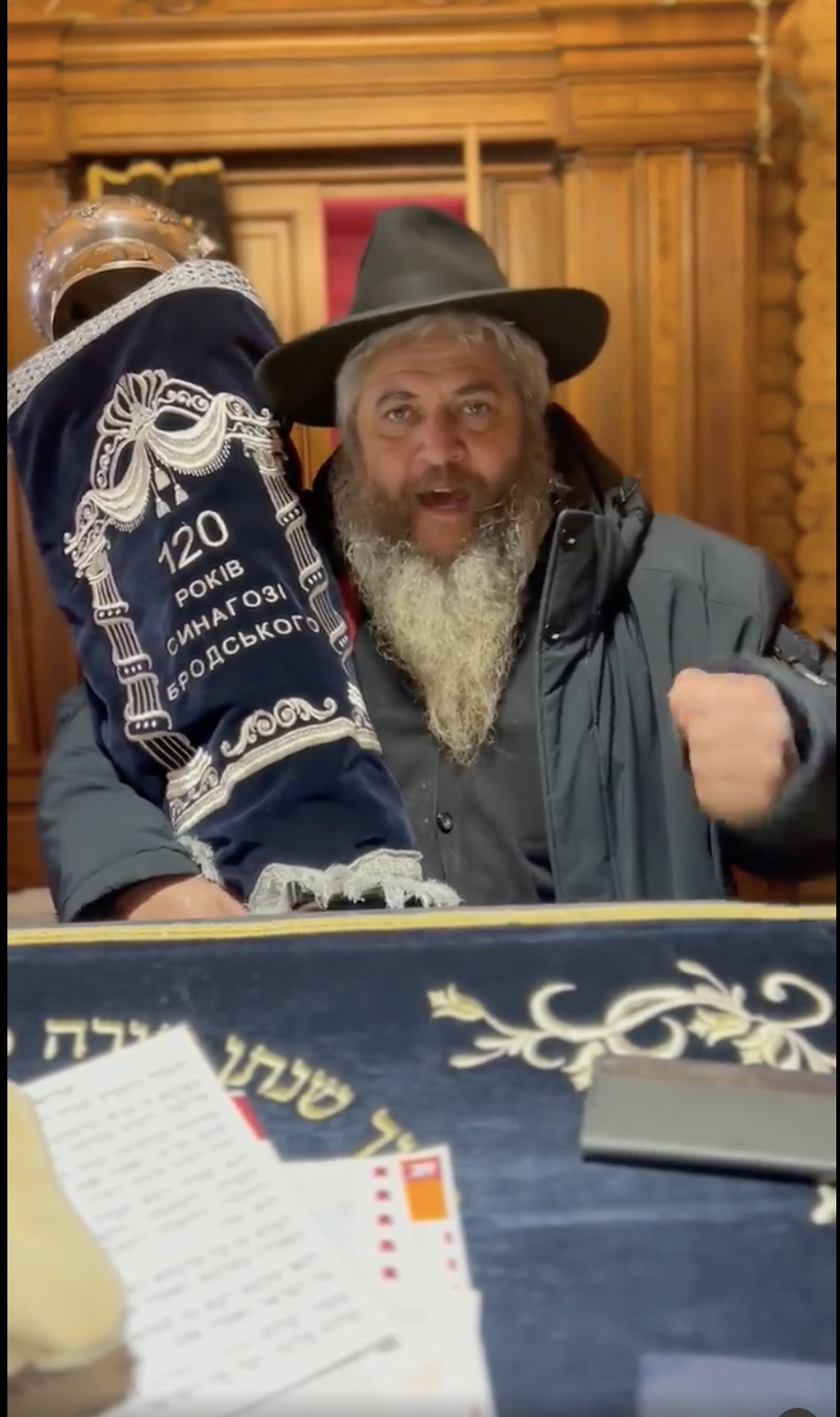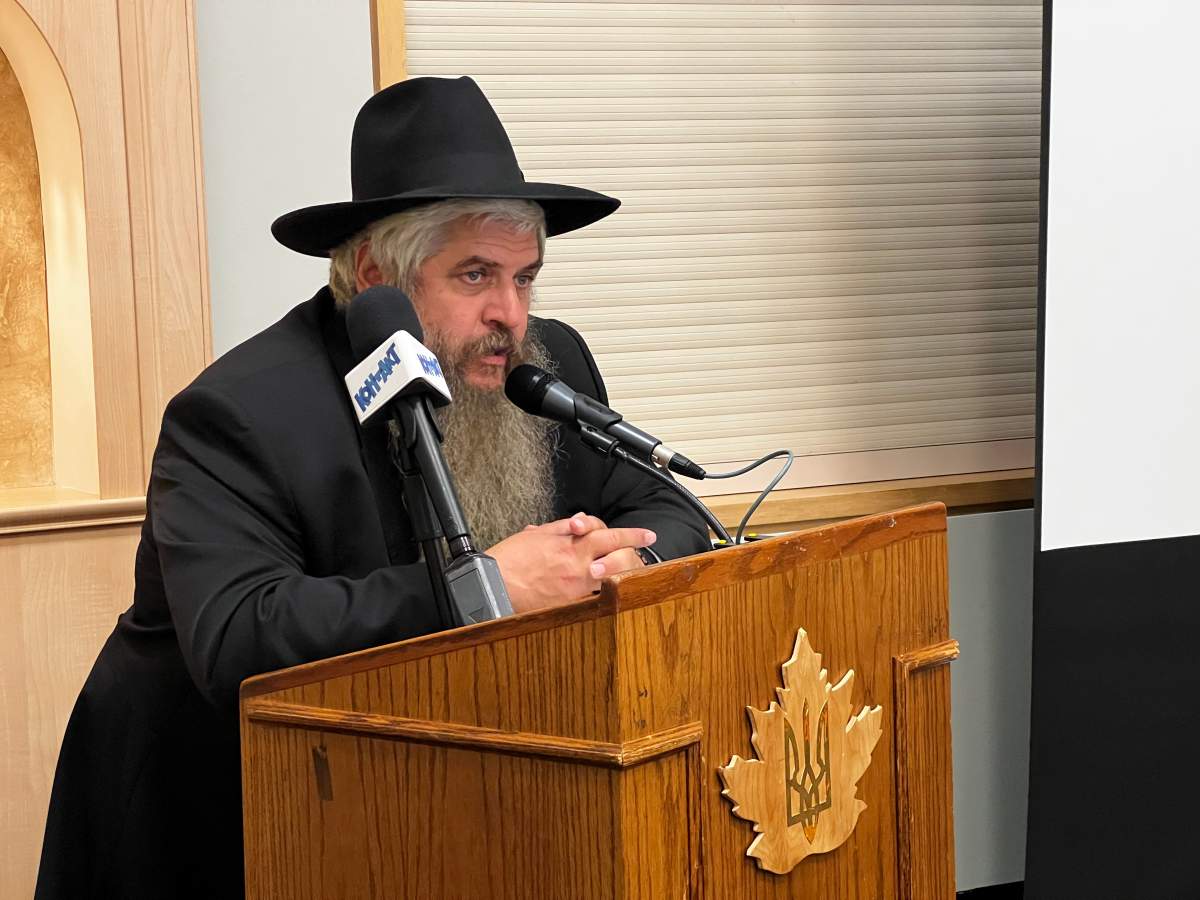An online video shows Ukrainian soldiers driving an amphibious all-terrain vehicle through flooded streets in the southern city of Kherson, rescuing civilians trapped after a nearby damn was destroyed in June. And assisting with the evacuation effort, seated with the troops inside the ATV, is a 57-year-old rabbi.

Moshe Azman, known as Ukraine’s chief rabbi, has swapped his kippah and kittel for a helmet and flak jacket. Since Russia launched its full-scale invasion last year, Azman has traversed the war-torn country to deliver aid and evacuate civilians from some of the most dangerous areas.
That humanitarian work nearly cost his life. During his trip to the flooded city of Kherson in June, Azman was recording a video message when a Russian shell struck nearby, sending the bearded rabbi diving for cover. Fortunately, no one was hurt.
“The Russians are shelling civilian people during evacuation missions,” he told Global News. “Before the war, I was a very quiet guy. Now, I cannot be quiet.”
Azman was born in Russia and grew-up in Vladimir Putin’s hometown of Leningrad. His parents were Jewish but the Soviet Union forbade them from practicing their religion, so in 1987 Azman immigrated to Israel.
He and his Ukrainian wife later moved to Kyiv, Ukraine, and in 2015 Azman opened a refugee ‘village’ for Jewish Ukrainians and others displaced by the fighting in the Donbas, named after Fiddler on the Roof’s fictional ‘Anatevka.’
When Russia launched its full-scale invasion on February 24th, 2022, Azman’s refugee centre became a bomb shelter.
“I thought it was a dream. I told myself to wake-up,” he said, describing the moment the first air raid sirens sounded in the Ukrainian capital.

Get daily National news
As explosions thundered in the distance, dozens of families huddled together inside the hall of the refugee centre, including members of Azman’s family.
“I was very nervous because I have many people, women, children, my children were there and my small grandchildren,” he said.
When the bombs finally stopped hours later, Azman went to his synagogue and recorded a video that would alter his trajectory.
Speaking Russian and cradling a Torah scroll, he furiously condemned the Russian government, its military and what he called the silent indifference of the Russian people.
“If God forbid, I have to die, then let the curse be on those who are silent and quietly participate in this attack,” he said, angrily slamming his fist on the podium.
The six-minute video was posted on Facebook and received nearly one million views. So the rabbi recorded another video. And another. And another.
17 months later, his social media platforms are full of viral videos recorded during his humanitarian missions in three languages: Russian, Ukrainian and English. The latter are meant for a Western audience, with the rabbi calling for more international support.
This week, Azman brought that message to Canada, visiting the Toronto area and meeting with various Ukrainian and Jewish community groups. His Canadian visit follows earlier trips to Israel, the United Kingdom and the United States.
“I would like to thank all the good people here, the Canadian government, Canadian people, Canadian organizations. They’ve given a lot of help for Ukraine. But please don’t be tired,” he said, citing concerns about growing donor fatigue among Ukraine’s allies.
“My message is for people to continue to help Ukraine.”
Alik Gomelsky, a Jewish-Ukrainian-Canadian author who helped to organize the visit, said the rabbi’s message is particularly important for members of the Jewish community, some of whom remain divided over support for Ukraine, he said.
“It’s very important to spread the word of truth and saying the Jews and the Ukrainians are together,” Gomelsky said. “The rabbi has very good influence and he can convince and explain. People in Canada can listen and see a person who was actually on the front lines.”
In his speeches and conversations, Azman fiercely pushes back against Russian President Vladimir Putin’s false claims that Russia is liberating Ukraine from Nazis.
“We don’t have Nazis in Ukraine. Even anti-semitism in Ukraine is low,” Azman said, pointing to Ukraine’s Jewish President Volodymyr Zelenskyy, whom Azman has known for years prior to his election.

“Please don’t make (Russian propaganda) out of the tragedy of the Jewish people.”
Azman recalled growing-up in Russia and watching films about the Second World War, with scenes depicting the Soviet Red Army fighting back against the attacking German Nazi tanks.
“The German Nazis did the mass killing of Jewish people,” he said. “Now it’s the Russian tanks that are attacking us.”














Comments